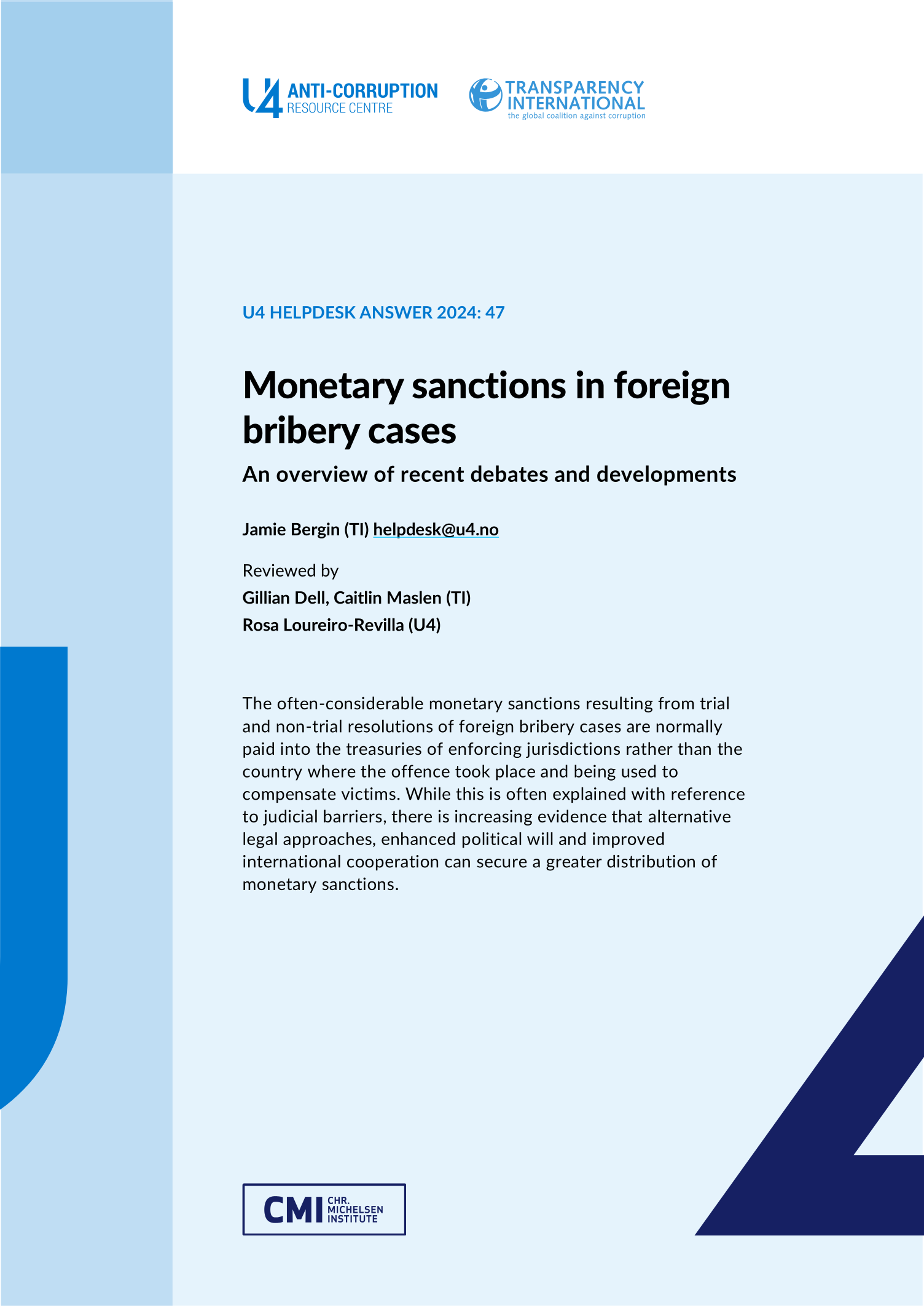Main points
- Trial and non-trial settlements of foreign bribery cases often conclude with monetary sanctions being imposed on offending corporate entities and individuals.
- Statistics indicate these sanctions are overwhelmingly paid into the treasuries of jurisdictions in the Global North, leading the enforcement against foreign bribery (‘enforcing countries’) instead of being shared with the jurisdictions where the bribery took place (‘foreign countries’). Moreover, levels of compensation granted to the ‘overseas victims’ of these foreign countries remain low globally.
- In recent cases involving multinationals such Airbus and Glencore, judges explained such outcomes by citing the complexity of assessing who counts as a victim of foreign bribery and calculating damages.
- Nevertheless, in exceptional cases, such as ICBC Standard Bank, compensation to affected countries has been awarded under specific conditions. In the Odebrecht and Braskem case, a significant proportion of sanctions collected were shared with the foreign country which assisted with the investigation.
- Voices from academia and civil society have weighed in on such debates, often calling for greater political will and alternative judicial approaches to overcome such bottlenecks.
- Proposals include strengthening victim’s legal standing to participate in foreign bribery cases, enhanced international cooperation among law enforcement bodies and simplifying procedures for quantifying damages.


